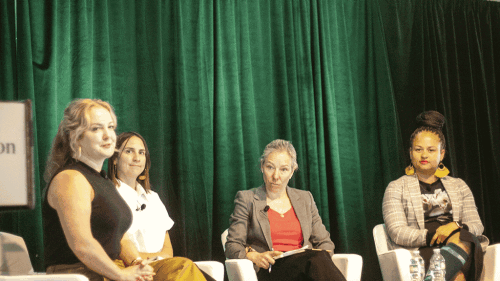Since Congress legalized crowdfunding for real estate projects in 2012, the internet-based financing source has grown dramatically, from $396.4 million in 2013 to $2.5 billion in 2015, according to the Los Angeles–based research and advisory firm Massolutions. But panelists at ULI’s recent 2016 Spring Meeting in Philadelphia said that what the Wall Street Journal has called “the Uberization of finance” is just starting to gain momentum.
While the speakers expect the influx of money to online fundraising platforms to continue its startling growth, that is just the start. They also envision the range of fundraising options to expand and create opportunities to invest in a wider range of projects. Within a decade, they expect online fundraising to become not just accepted, but ubiquitous throughout the industry, as part of a multichannel approach that will include both traditional sources such as banks and private equity firms, and a direct-to-investor channel.
“What we’re really talking about is the modernization of how you fund commercial real estate,” said Darren Powderly, cofounder of CrowdStreet, a three-year-old Portland, Oregon–based firm that provides an online platform for real estate developers and managers to raise capital from investors. “Ten years from now, it’ll be a no-brainer. People will be saying, ‘Of course, I raise money online.’ ”
In some ways, CrowdStreet exemplifies the conceptual evolution of real estate crowdfunding. The venture capital–funded startup’s main thrust has been building a marketplace in which institutional-quality real estate investments—both debt and equity—are offered to a database of accredited investors. In that fashion, CrowdStreet has done 40 deals with an average raise of about $850,000, Powderly said.
“We could have done 400 deals, but our marketplace is highly curated,” he said.
Last year, CrowdStreet debuted a new product called Sponsor Direct, a “white label”—that is, rebrandable—version of its software that allows developers to do crowdfunding on their own websites as well. According to GeekWire, more than 20 real estate firms already are using it.
“Clearly, technology is dis-intermediating, disrupting,” Powderly said. “This is happening in every industry. It’s shocking that it isn’t happening even more rapidly in our industry, commercial real estate. But it is happening.”
Panel moderator Martin S. Burger, chief executive of New York–based real estate development, investment, and management firm Silverstein Properties, said that one of crowdfunding’s advantages is the potential ease of providing investors with documentation. As an example, he cited the platform developed by Fundrise, which allows investors to pull up information such as construction budgets and commitment letters for projects.
“You could touch the transaction,” Burger said.
Navjot Athwal, founder and chief executive of RealtyShares, a three-year-old San Francisco–based crowdfunding platform, said that interest is so strong that his company’s database of 20,000 accredited investors is growing by about 2,000 each month. The firm recently hit the $150 million mark in capital formation, and is raising $15 million to $17 million each month for projects.
Athwal said that RealtyShares, which has raised money for projects in 60 different regional markets across the United States, is aiming to fill a niche where capital formation is particularly inefficient—the sub-institutional market segment, with deals in the range of $500,000 to $5 million. The crowdfunding firm will raise funds to cover up to 90 percent of the equity in a deal, and also arranges bridge loans and hybrid debt/equity deals.
RealtyShares, which helps make deals quicker and more efficient by handling investor relations for developers, is hoping to gradually expand the size of its deals, so that by 2017 it will be able to provide as much as $7 million in financing to a developer.
As with CrowdStreet, RealtyShares’s marketplace is highly curated to reduce risk. “All of our deals have to be fully entitled, and ready to put sticks in the ground,” said Athwal, who spent a decade as a real estate attorney representing large institutional clients, and eventually became an investor himself before founding RealtyShares.
Athwal said that as his firm amasses more and more data, its ability to predict the success of transactions will become more sophisticated.
King Davidson, senior vice president of real estate for Fundrise, said that he eventually expects to see a shakeout and consolidation among crowdfunding platforms, but that the investor pool will continue to grow. He said, “We want millions of investors.”





